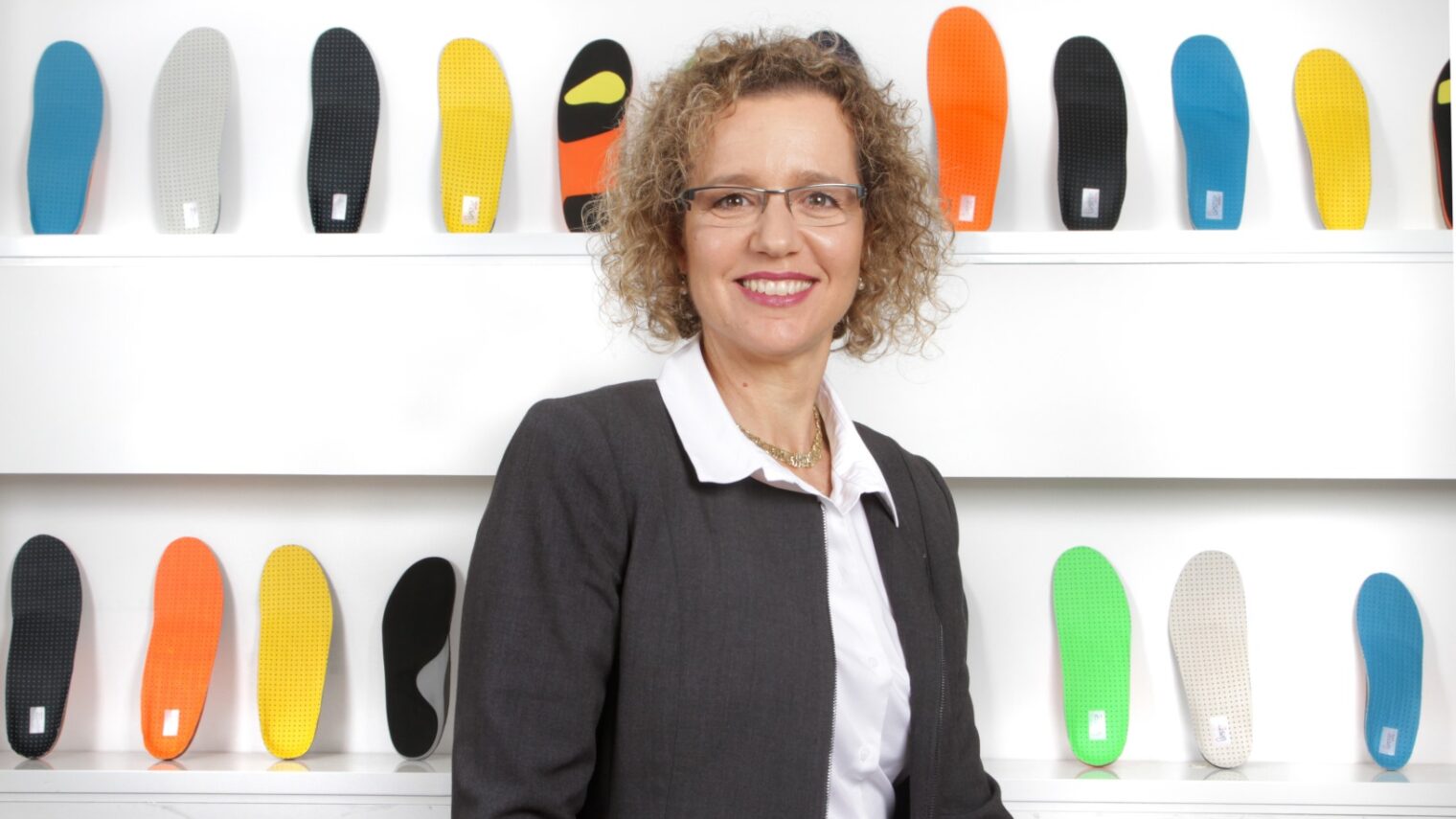Why am I sinking my bare feet into squishy blue foam? Because I’m trying out Upstep, a new Israeli online service that makes custom-made orthotic insoles delivered to your home.
Though Upstep serves customers only in the United States for now, the Rishon LeZion-based company agreed to have ISRAEL21c test the ordering process and the finished product.
Here’s how it goes. First, you answer a few questions on the website, such as whether you have foot pain and what size, type, color, brand and model of shoes you plan to put the insoles into. You snap a picture of the shoes and attach it to the form.
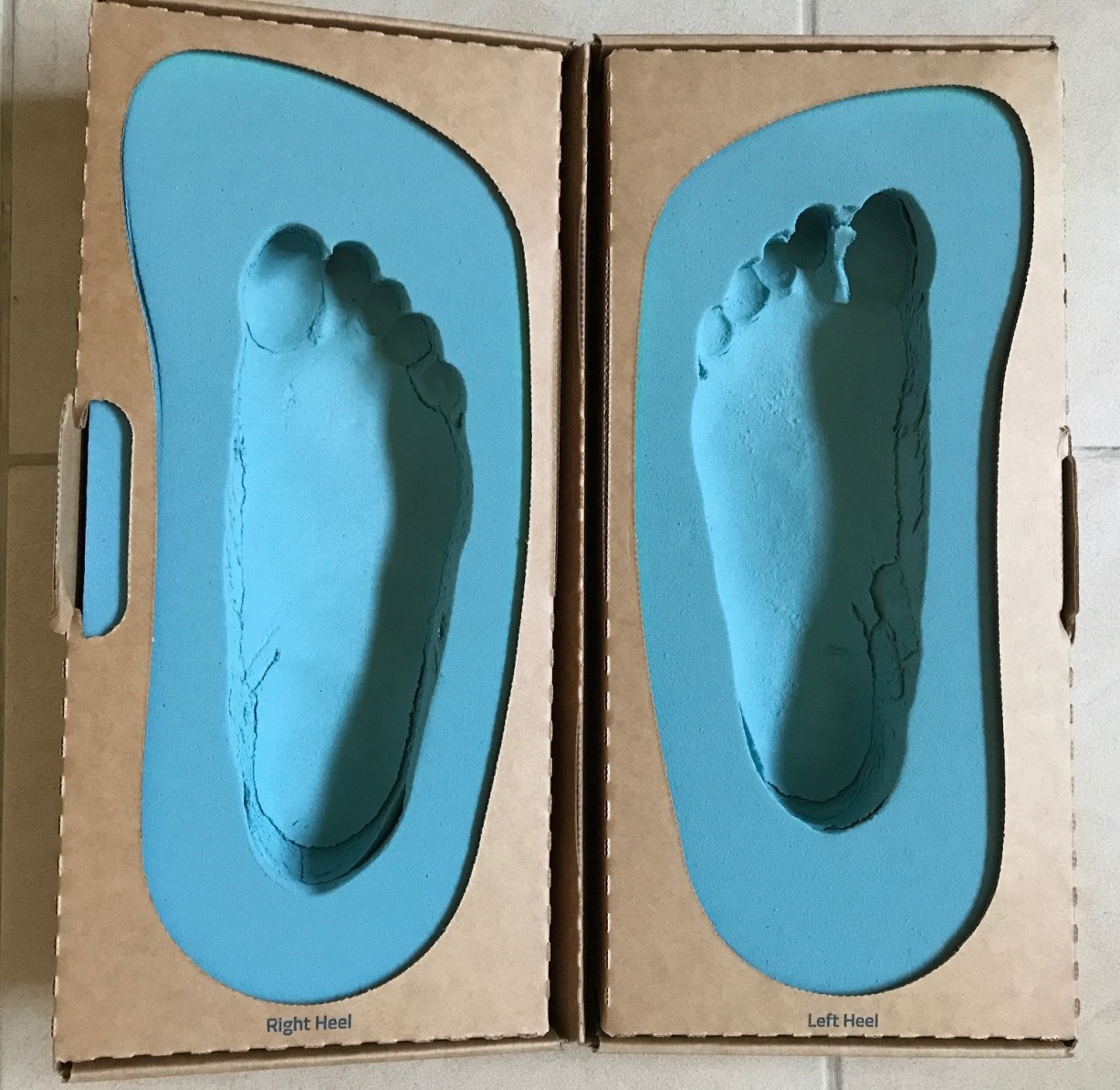
The impression box arrives within a day or two and an Upstep tutorial video helps you take your footprint impressions.
The kit goes back to the Upstep fulfilment center in New Jersey, where 3D technology is used to scan the impressions. They are then sent to a cloud server and fetched by Upstep’s chief podiatrist, Philip Wells, who’s been making orthotics for the general public and professional athletes in the UK for 19 years.
Wells creates a design file and transmits it to Upstep’s Israeli production center, where the insoles are made using 56 possible combinations of materials including multilayer EVA, a polymer similar to rubber. The insoles are shipped via FedEx within 12 days.
Upstep insoles cost in the $200 range – more than over-the-counter orthotics but less than most custom orthotics — and are covered by a 60-day money-back guarantee. Each footprint is saved in a database, enabling additional orders for up to five years.
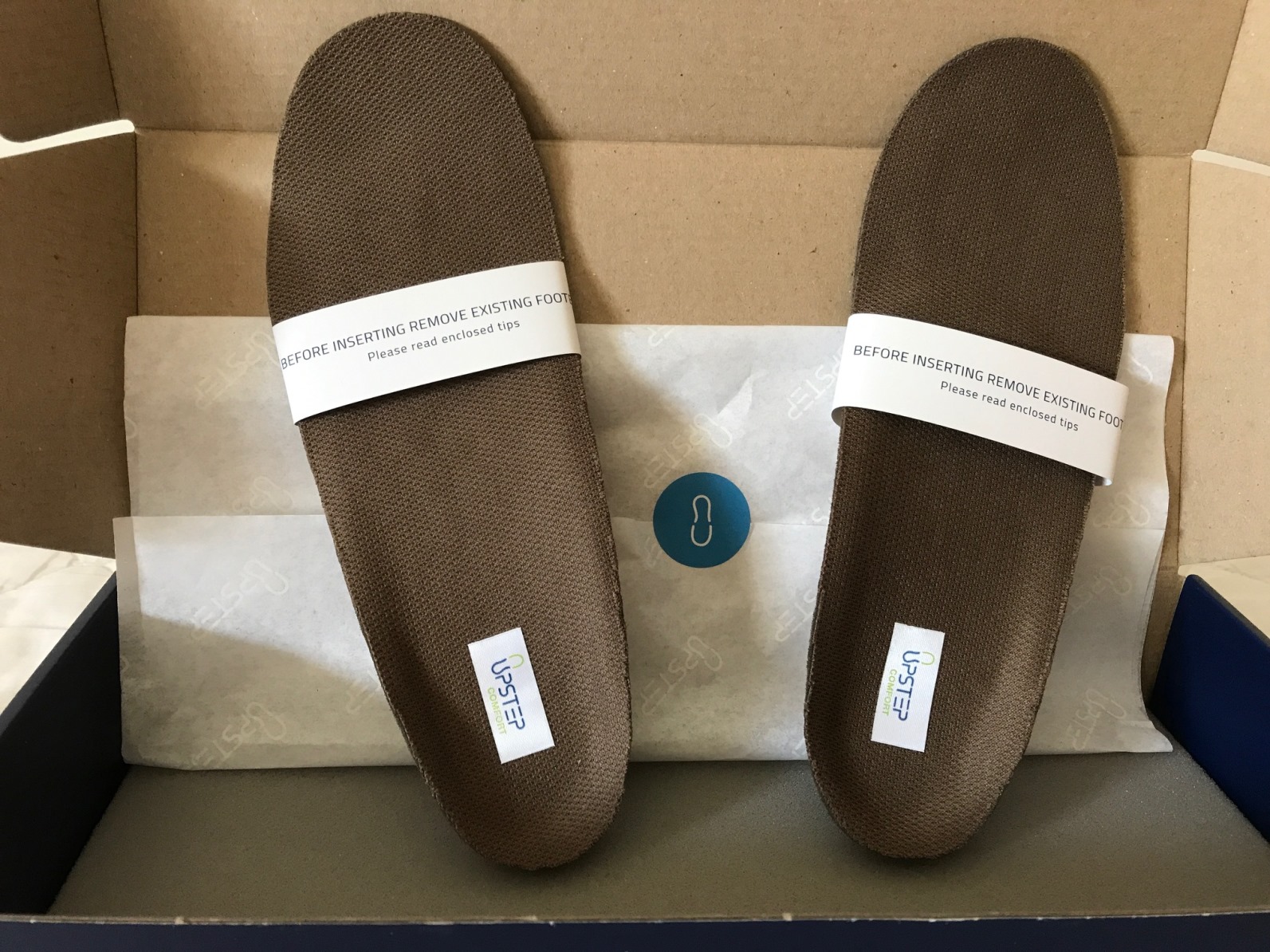
Sibling startup
The global orthotic insole market is big: $2.6 billion in 2015 and probably $3.7 billion by 2021, according to experts.
That’s due to several factors — an aging population, a growing demand for orthotics in sports, and health issues such as obesity, plantar fasciitis and heel spurs that affect millions of feet.
Into this lucrative market stepped three Israeli siblings, Limor Katz and her brothers Aviad Raz and Oren Raz. They put $3 million into their startup because they believe it’s truly disruptive.
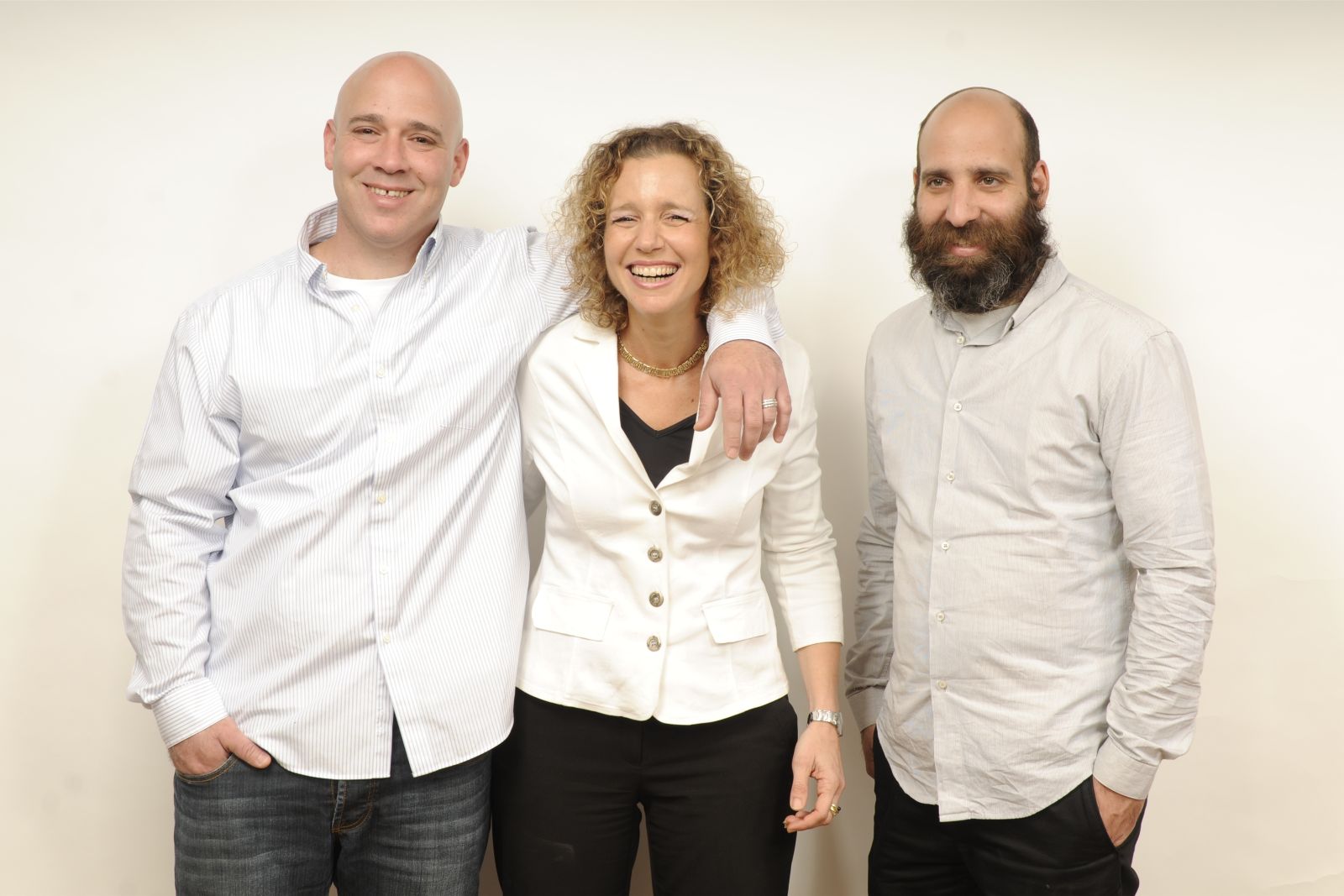
Their product line is for anyone “from women wearing dressy shoes, to athletes and amateurs in every sport and professionals who are on their feet for hours every day — like nurses, teachers, salespeople, flight attendants and cooks,” says Katz, 49, chief marketing officer.
They all worked in an established family business until about six years ago, when they got an itch to start a new enterprise leveraging each one’s expertise: Limor in marketing, Aviad in technology and business development and Oren in logistics and production.
“We wanted to find a product that can have a big benefit for customers, and I know from experience that people who need custom orthotics can’t do without them,” says Katz, who has worn orthotics since age 14.
“But it’s a big operation to get them fitted properly. It costs a lot of money, takes a lot of time and doesn’t always help. So we decided to work together to make it easier, faster, cheaper and very accurate.”
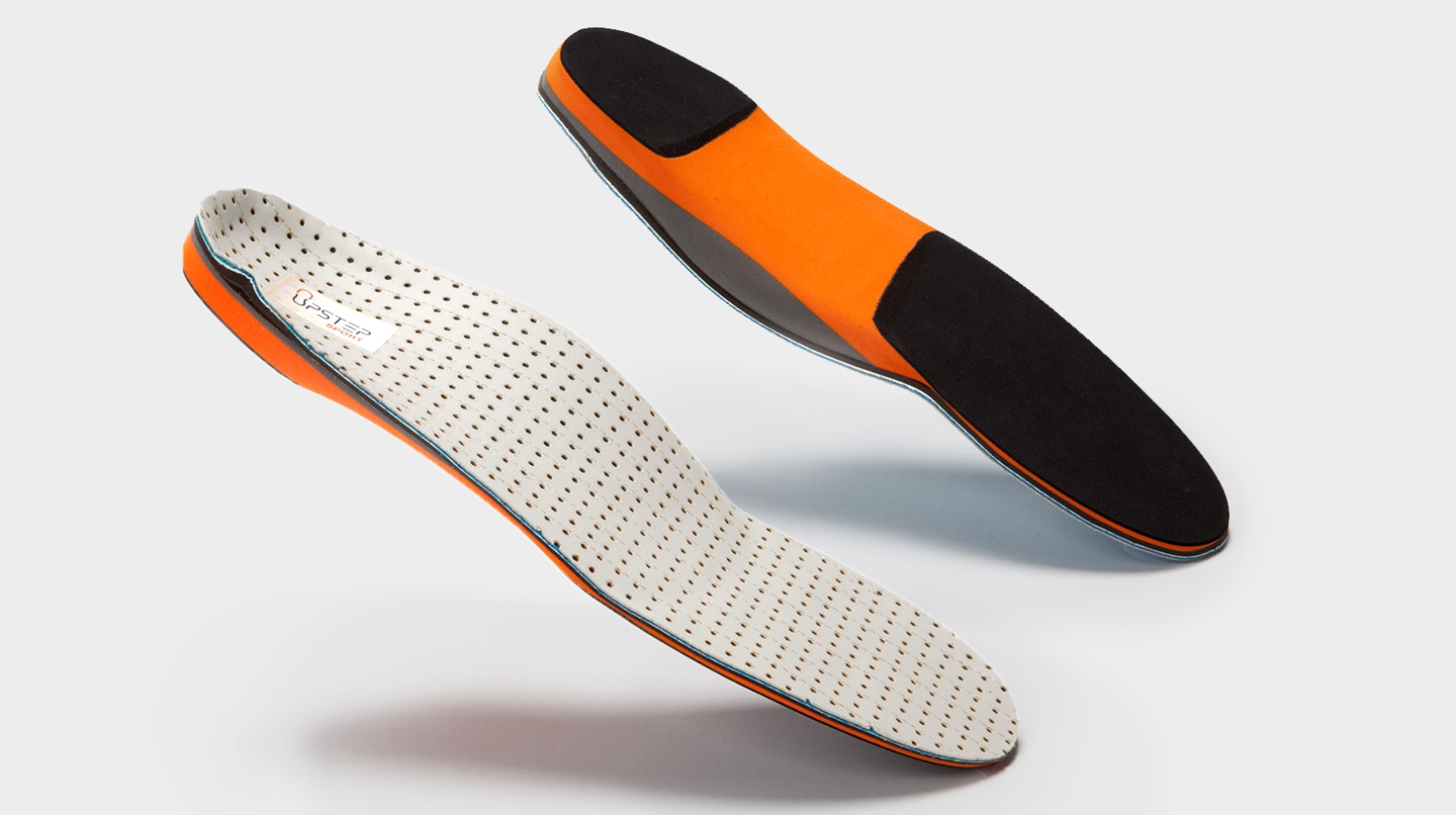
Three years of development included searching for a seasoned podiatrist willing to make the product without seeing the customer. It didn’t faze them that the podiatrist they chose is in England.
“After an hour meeting we knew Dr. Wells was the right man for the job,” says Aviad Raz.
Soft-launched in 2016, Upstep fine-tuned the three-continent fitting and manufacturing process before officially launching its service to US customers In June.
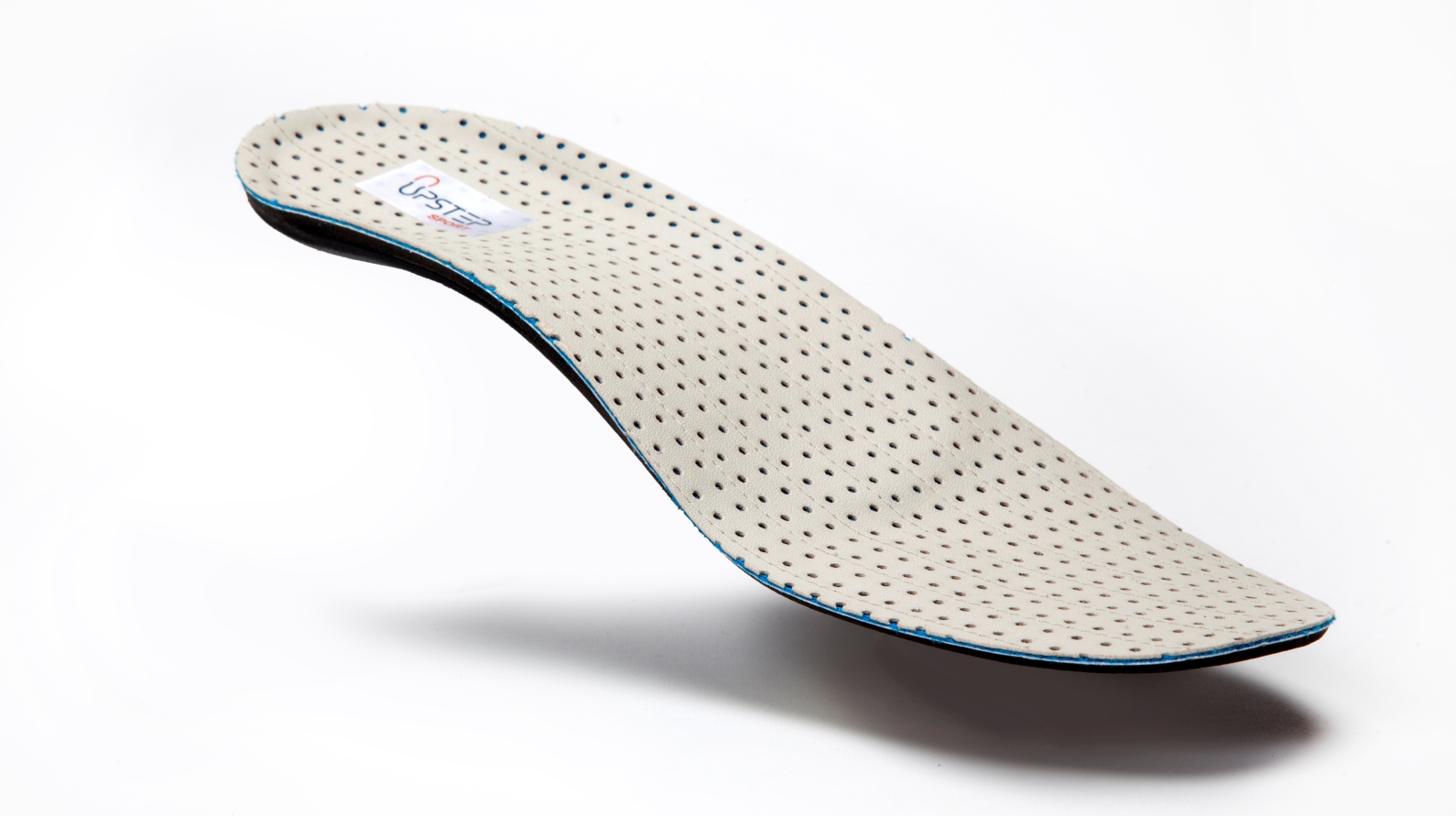
Golfers, runners and women are specific target markets. Upstep presented its custom golf orthotics at the 2017 PGA Merchandise Show in Florida, and offers a special purchasing platform on which the customer’s golf coach, pro or fitter can be involved in customizing the order.
Upstep employs about 15 people and plans a Series A round to raise up to $3 million.
How did my insoles stack up? I don’t have a problem with my feet and I’ve never worn custom insoles so I can’t compare their effectiveness to conventionally fitted orthotics. I can say that the process was easy, the Upstep reps were responsive and friendly, and most importantly the insoles are comfortable.
Dr. Joel Greenwald, an Israeli podiatrist, says that for someone needing gait control, a more rigid orthotic would be required, using graphite or a similar hard material. Indeed, Upstep also offers rigid insoles to customers who require this.
For more information, click here.




